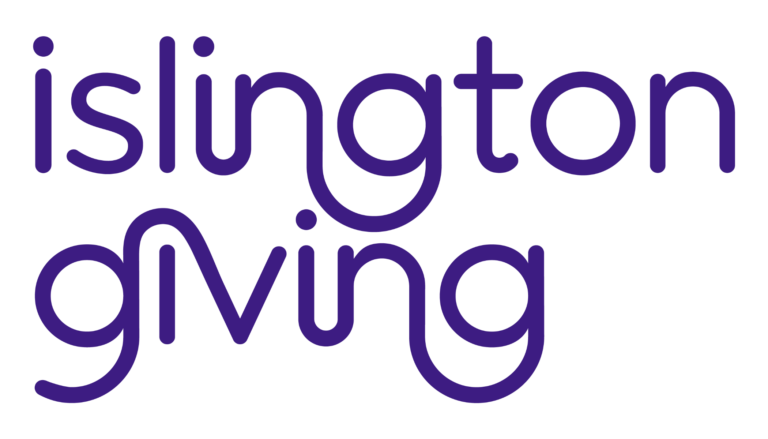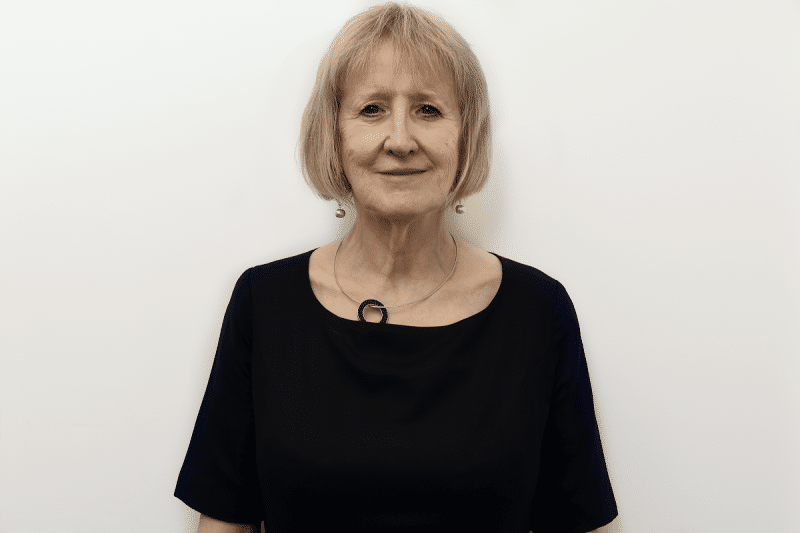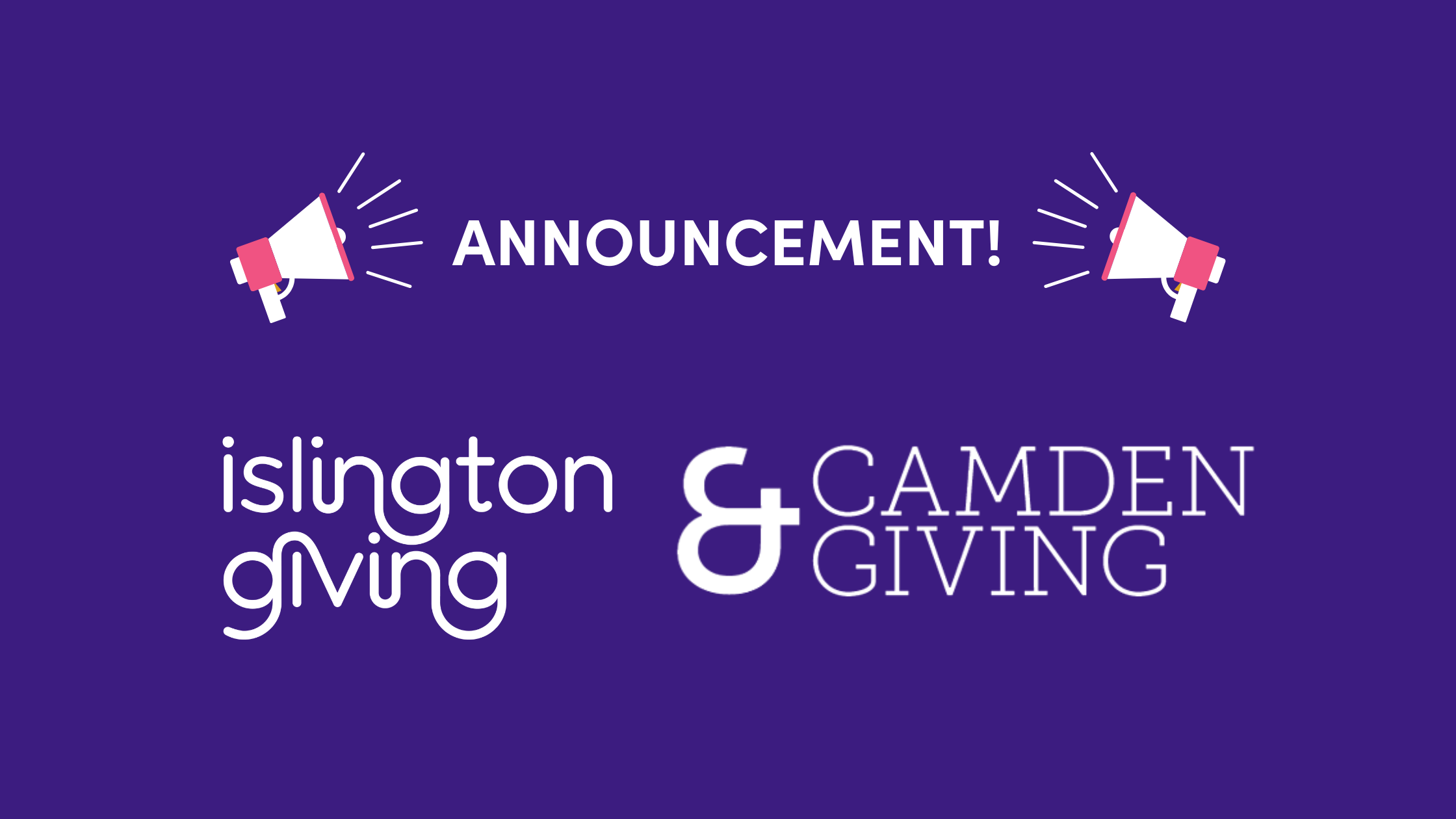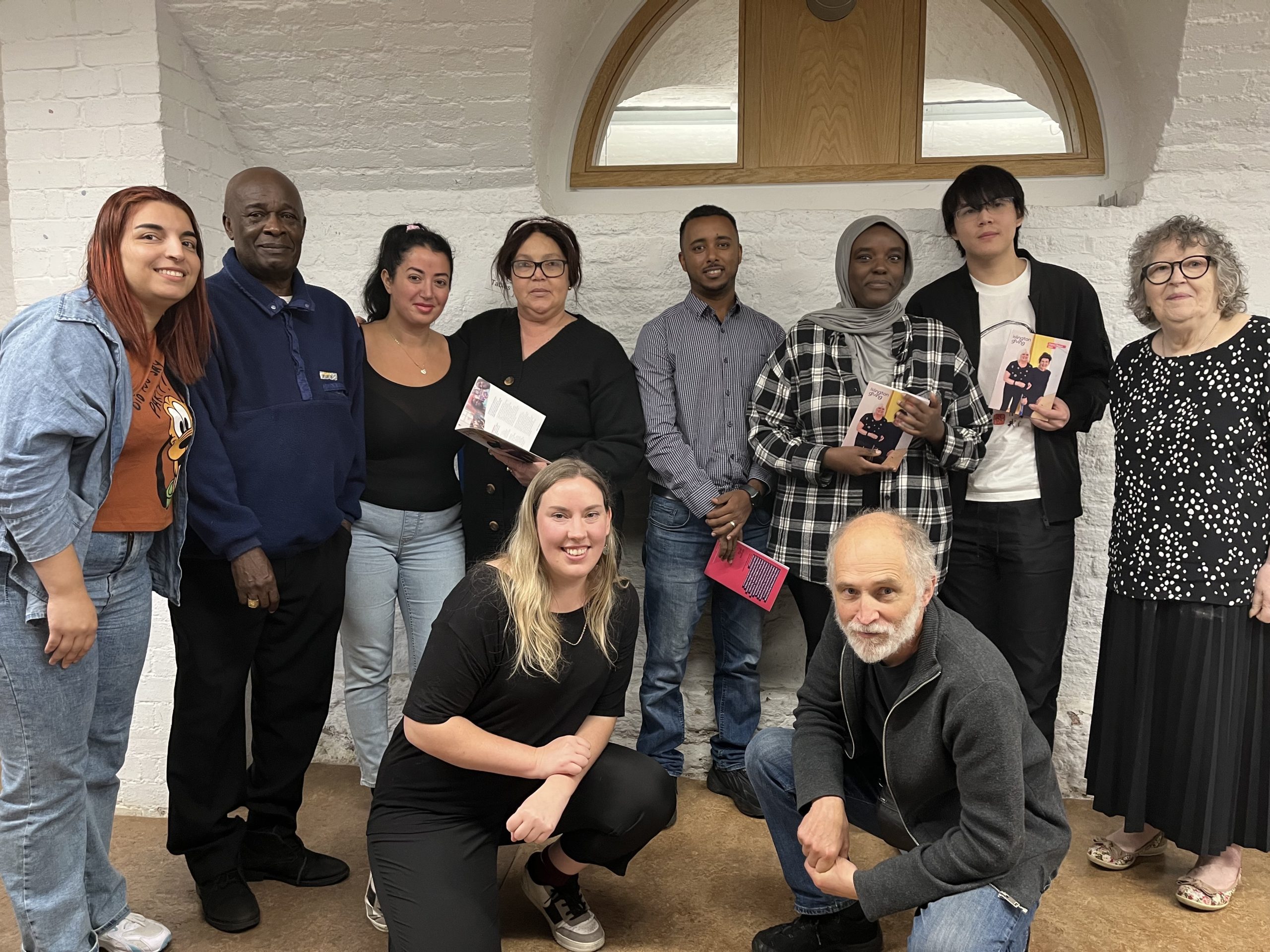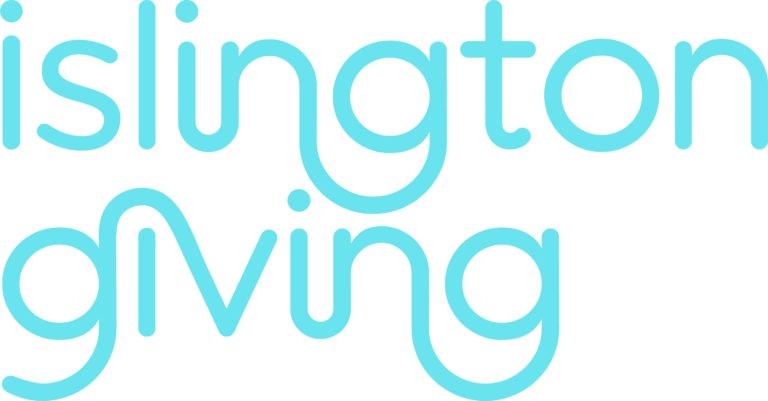In September 2019, Kristina Glenn stepped down as Director of Cripplegate Foundation after 12 years, and nine years as Director of Islington Giving.
Kristina has worked for the Foundation since 1993, starting as a part time Grants Officer before working as Grants Manager. Before becoming Director, she oversaw the awarding of millions of pounds of funding to organisations addressing poverty and inequality. During that time Cripplegate has developed from a grant-making trust to an organisation that promotes social change and now works in partnership with others.
Mirroring the Foundation’s commitment to longer-term core funding, Kristina has championed long term support and core funding for voluntary organisations.
A Review of 10 Years of Grant making: 1990-1999 (published to mark the Foundation’s 500-year anniversary) features organisations which will be familiar to people involved in Islington’s voluntary sector today. From start-up grants to “CHANCE” (which would go on to become Chance UK), and running costs for Islington Pensioners Forum, to mentoring projects at City & Islington College, flexible responses to real needs were in evidence
It is difficult to overstate the change in Islington and London during Kristina’s time with the Foundation. Below we reflect on some of the changes that have helped Cripplegate Foundation champion social justice. Through the years, there is clear, continually growing evidence of an ambition to expand support for residents by modernising and maximising the use of all the Foundation’s assets: its people, its knowledge, its endowment, its space, and its relationships.
26 years of change in Islington
1993 – Kristina Glenn joins Cripplegate Foundation as a part time Grants Officer
1997 – The Foundation establishes a Schools Programme to reach more young people and offer opportunities ranging from school journeys to Berlin for students with physical disabilities to artist residencies to support children’s creativity
1998 – In order to adapt to changing local needs, the Charity Commission agrees to enlarge the Foundation’s area of benefit from a small part of the borough, so that it covers all of south Islington
1999 – Following a conference and report on older people’s views of Islington, the Foundation funds a new Plus Bus Service which provides a bus service taking people where they want to go in Islington. This is now the 812 funded by Hackney Community Transport and Islington Council
2000 – The Foundation establishes the South Islington Advice Project, offering welfare rights advice to residents of Finsbury and Clerkenwell. It is based in local organisations and takes advice to where residents live. This model still informs how the Foundation supports advice services for residents living across the borough
2001 – Governors respond to needs in the wider area by encouraging funding applications and developing new services in Kings Cross. The Foundation joins Team Cally, a multi-agency and resident collaboration to support the area
2002 – The Islington Community Chest started life in 2002, when Cripplegate Foundation was asked by the Government Office for London to run a small community grants programme. Until 2009 it was supported by a range of different funders. It is now Islington Council’s Community Chest, a partnership between Cripplegate and Islington Council, one of Islington’s most popular grant programmes
With funding from the Foundation, the Brandon Centre begins an innovative counselling service on Whitecross Street. Its location, a building known as ‘The Drum’, is owned by Cripplegate Foundation
2003 – Alongside senior staff from Islington Council’s Education department, Kristina is part of the steering group for Cripplegate’s ‘Text: Writers in Schools’ programme, with writers working with young people for a term to write physics and history books and plays. This was a pioneering example of the Foundation’s increasingly collaborative approach
2004 – The South Islington Advice Project is extended to Kings Cross. The Foundation publishes an evaluation of the Advice Projects called ‘Taking the Initiative’, which set the tone for its commitment to taking a pro-active stance in the community
2005 – The Foundation helps launch the Canonbury Community Development Group – a forum of local and statutory service providers and residents. The Group (later renamed One Canonbury), supported better use of the Walter Sickert Community Centre. This would help pave the way for Help on Your Doorstep’s successful Good Neighbours Scheme on the New River Green Estate
2006 – Kristina joins the Board of Volunteering England, championing volunteering and its contribution to civil society. Kristina would also serve as Vice Chair, before the organisation merged with NCVO in 2012
2007 – In January, Kristina is appointed as Director of Cripplegate Foundation
2008 – The Foundation’s Area of Benefit is finally extended to cover the whole borough of Islington. This transforms the Foundation’s role and work
The Foundation publishes Invisible Islington: Living in Poverty in Inner London, Rocket Science’s report that helped build an evidence base to encourage cross-sector partners to invest in the borough. Governors declare their support for Cripplegate Foundation’s increased engagement with local and national stakeholders
The report led to establishment of the Islington Debt Coalition, the development of Help On Your Doorstep as a charity reaching the whole of Islington, the Catalyst Programme and to Islington Giving
2009 – The Foundation publishes Unlocking the Potential: Volunteers in Islington, analysing the value of volunteers to the borough, and advocating for more opportunities to promote and celebrate volunteering. It echoes Islington Giving’s principles that everyone can give – time and skills are as important as money
The Foundation helps to establish Help on Your Doorstep as an independent charity, delivering Connect services aimed at improving the wellbeing of isolated and vulnerable Islington residents. It would go on to be a flagship partner of Cripplegate Foundation and Islington Giving. Help on Your Doorstep formed lasting partnerships with Islington Council, based in community centres and estates across the borough. The charity celebrated its 10th anniversary in 2019, and now reaches out to thousands of people each year
The Islington Community Chest becomes Islington Council’s Community Chest. Since 2009, Islington Council has worked with Cripplegate Foundation to support Islington’s grassroots organisations with flexible, funding and advice. Over £1.7m has been awarded
The Foundation establishes the Catalyst Programme, offering devolved budgets that organisations can award as small grants to local people. Ten years on, Catalyst’s mechanism of unlocking joy and opportunities is still unusual for the sector
2010 – Islington Giving, a major local philanthropy campaign, involving trusts, businesses, and residents, is launched, initially as a three-year campaign to bring £3m into Islington
Kristina comments that Cripplegate on its own “can make very little dent on the issues we are addressing”. Original coalition members Breadsticks Foundation, Cloudesley, The Morris Charitable Trust, UnLtd, and Voluntary Action Islington, join Cripplegate Foundation in tackling poverty and inequality in the borough
Discussing Islington Giving, Kristina identified issues about funders sharing power “If you want control, then something like Islington Giving isn’t for you. You have to move out of your comfort zone.”
2011 – Kristina is awarded the MBE in the Queen’s New Year’s Honours saying. “It’s a great honour to be recognised like this but I’m only a small cog in a charitable wheel which hopefully will be able to make some improvements to the lives of those struggling to cope in these difficult times.”
Islington Giving asks Help On your Doorstep to run a good neighbours scheme on the New River Green estate. It says “The Good Neighbours scheme will pilot a new way of giving time. It will build on the success of Help On Your Doorstep’s reach into social housing estates and its ability to reach the most isolated Islington residents.” There are now three Good Neighbours Schemes
Kristina is elected Chair of London Funders. Her vision and collaborative approach in establishing Islington Giving would inspire the growth of London Funders until she stepped down as Chair in May 2017
2012 – The Office for Public Management and NCVO publish Giving Together: How Islington Giving is transforming local philanthropy. The report found that Islington Giving was more than the sum of its parts, breaking new ground through its unique focus on place, partnership and local knowledge. This would further support the expansion of the idea across the capital
2013 – Cripplegate Foundation coordinates the national Keep the Safety Net Campaign, backed by a coalition of over 120 organisations, to campaign for Government maintenance of Local Welfare Provision in March 2015. This work helped to sustain the Resident Support Scheme, which is one of the few schemes in the country still supporting people in crisis today
The Foundation publishes Distant Neighbours: Poverty and Inequality in Islington, a New Economics Foundation report which continues to build a strong local evidence base to inform strategy. The report includes the prescient suggestion that in 2020, families in Islington would need incomes of at least £90,000 to afford to live here
On the centenary of its move to Islington, Arsenal announces a partnership with Islington Giving. The Arsenal Foundation would donate £150,000 over 3 years, supporting Friday night activities for young people, chances for older neighbours to socialise on Saturdays
Islington Giving, the Macquarie Group Foundation, and East London Business Alliance establish the BIG Alliance (Businesses for Islington Giving) the first time that businesses have worked together in Islington. Designed to best utilise the skills, experience, and ideas of employees of Islington’s largest businesses for the benefit of the local community, the Mentoring Works Programme provides career insights and advice to young people. In 2019, the BIG Alliance celebrated the programme’s 1,000th mentee and is working in all Islington secondary schools and City & Islington College
2014 – The Islington Giving campaign raises £3million. The Islington Giving Board and Cripplegate Foundation Governors agree to make it a permanent part of the borough
The Friday Night Out Project begins, in partnership with Arsenal in the Community. It offers free weekly activities to young people living in Kings Cross and Canonbury
The Saturday Night Out Project is a flagship programme for Islington Giving. It opened the Sobell Leisure Centre when it was usually closed, and regularly attracted between 150-350 young people. This was an important, successful example of the Islington Giving approach, opening spaces at times and in places that people want and need
2015 – London Funders launches London’s Giving, inspired by Islington Giving. Other London boroughs explore collaborative, ‘needs led’ approaches to effect change. There are now 20 Givings across London. Islington Giving is cited in national reports as an exemplar for place-based giving
Islington Giving launches a flagship Mental Wellbeing Project. Early grants would support innovative approaches to mental health provision, and bespoke assistance for some of Islington’s most vulnerable residents
2016 – Cripplegate Foundation launches an innovative long-term (5 year) Development Partner programme with funding to four organisations. The Partners would meet regularly, sharing learning and ideas that have led to the development of ‘relational practice which is being developed with statutory partners
Following research undertaken by Kaizen Partnership, Islington Giving publishes Making the Most of Free Time, its new Young People’s strategy. 340 young people were asked to give their views on their borough. They told Islington Giving they wanted more information about local opportunities, to have more of a say on how money is spent in the borough and would like more things to do at times that suit them. Islington Giving would go on to adopt this approach of doing things with not for residents
The National Lottery Community Funds joins Islington Giving, an opportunity for a national and local funder to learn from each other
2017 – With support from Cripplegate Foundation, Islington Giving and Islington Council, Help on Your Doorstep establishes its third Good Neighbours Scheme on the Bemerton Estate near Caledonian Road
Islington Giving publishes A Life not a Service, its new strategy for Supporting Families. This followed extensive conversations with local parents, families, and organisations that support them. The key finding was that parents wanted long term practical support and access to opportunities, £200,000 of funding would be awarded to help families build their social networks
2018 – With Youth Bank International and Fully Focused Community Trust, Islington Giving recruits 15 Young Grant-Makers. The group of 16-26-year olds would design, advertise, and decide on a £80,000 funding programme (over 10% of Islington Giving’s grant making budget). The Programme echoes Islington Giving’s principles as programmes are designed with not for young people; a new cohort of Young Grant-Makers are currently working to invest in their community in 2019
Islington Giving receives a Runner-Up award at the 2018 Charity Awards in the ‘Grant making and Funding’ category
2019 – On International Women’s Day, Kristina is awarded the Freedom of City of London with 105 other women in recognition of 100 years of women’s suffrage
Islington Giving continues to attract new partners, the Paul Hamlyn Foundation and the Goldsmiths’ Company, the first partnership for a Livery Company
Cripplegate Foundation’s 2019-2021 Strategy recognises that Cripplegate takes an evidence-based, innovative and proactive approach. All our work is in partnership with others to improve the lives of our most disadvantaged residents and to advocate for positive change in policy and practice
Islington Giving and Islington Council agree a 10-year partnership which will focus on early intervention and prevention so that all Islington young people can thrive. This is the first long term partnership between civil society and a local authority in the country. The partnership will be launched in early 2020.
